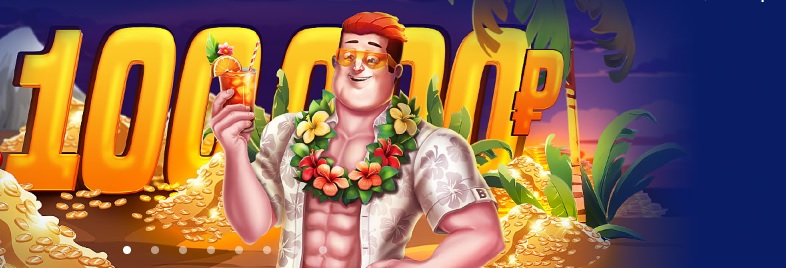Ramenbet – играть онлайн

Онлайн казино Ramenbet работает по лицензии Кюрасао и предлагает разнообразный ассортимент азартных игр, привлекательные бонусы, удобные варианты пополнения и вывода, отличные возможности для выигрыша.
В Раменбет казино играть одинаково удобно как с ПК, так и с мобильных устройств. В области азарта Ramenbet казино находится сравнительно недавно, но за короткий период своего существования стало довольно популярным, так как обеспечивает привлекательные условия, честные выигрыши и быстрые выводы.
📺 Ramenbet официальный сайт
В Ramenbet официальный сайт выполнен в темном цвете. Такое исполнение не напрягает зрение и обеспечивает комфортную игру даже в ночное время.
|
🌸 Официальный сайт |
http://www.gaidarforum.ru/ |
|
🍓 Год основания |
2021 |
|
🌻 Лицензия |
Предоставлено и действует в соответствии с законодательством Кюрасао, как согласовано с Antillephone N.V. в лицензии на игру. Номер игровой лицензии — 8419/JAZ 2021-088. |
|
🎧 Владелец |
GamingGriffin Corp. |
|
🚀 Игр |
4930+ |
|
😊 Языки |
русский, украинский, английский, немецкий, испанский, итальянский, арабский, румынский, португальский, шведский, польский, норвежский, финский, болгарский, японский, китайский, турецкий, азербайджанский, французский, литовский, чешский, греческий, хорватский, сербский, вьетнамский, узбекский, грузинский, тайский, корейский, латышский, казахский, индонезийский, словенский, персидский, иврит, хинди, малайский, албанский, белорусский, армянский, датский |
|
🐝 Валюты |
AWG, OMR, LYD, AOA, LKR, BTC, GBP, CUP, AMD, SRD, PYG, AED, TMT, AZN, BDT, BRL, DKK, MGA, GNF, ISK |
|
⚽️📷 Провайдеры |
Spinomenal, Espresso Games, EGT, Fugaso, Betsoft, Oryx, Radi8, August, ELK Studios, Belatra, Leap Gaming, Genesis Gaming, Gamefish Global, Amatic, Iron Dog Studio, Wazdan, Tom Horn Gaming, Betixon, Netgame, Pragmatic Play |
|
😄 Методы депозита |
Cash App, Discover, Google Pay, Razorpay, Paytm, AliPay, MoneyGram, Ethereum, Venmo, Dogecoin, Codashop, American Express, Cirrus, Revolut, PayU, Visa, UnionPay, Visa Electron, eCheck, PayPal |
|
😄 Методы вывода |
WeChat Pay, Apple Pay, Dogecoin, Maestro, Klarna, Neteller, Western Union, UnionPay, Affirm, Interac, PayPal, Razorpay, Cash App, MobiKwik, Afterpay, Stripe, Crypto, Bitcoin, MoneyGram, Visa |
|
✨ Бонус |
283+% на первый депозит, 283+% релоад + 10+ вращений на Колесе Фортуны, 10+% кэшбэк |
|
🚀 Мин. депозит |
283+ руб. |
|
🍦 Мин. вывод |
283+ руб. |
|
🍿 Мобильная версия |
Android, iOS, Windows |
|
🍕 Служба поддержки |
|
Раменбет официальный сайт характеризуется интуитивно понятным интерфейсом, ориентироваться по нему просто и легко. В самом верху страницы расположен логотип компании Рамен бет. В шапке сайта содержатся основные кнопки:
- регистрация в Ramenbet;
- установка языка в Рамен бет;
- разделы сайта Ramen bet;
- анонсы и реклама в Раменбет казино.
Чуть ниже шапки профиля находится основное меню и представлены наиболее популярные игры. Перейти в них можно непосредственно с главной страницы портала Раменбет. Для максимального удобства пользователей Ramenbet официальный сайт содержит выпадающее меню. Оно расположено с правой стороны страницы и включает кнопки навигации по порталу.

🍦 Игра с мобильных устройств в Ramenbet
Адаптирован сайт Ramenbet и для игры с мобильных устройств. В нем комфортно играть с планшетов и телефонов на базе системы Android и iOS.
Использование портала Ramen bet с мобильных устройств ничем не отличается от игры с ПК. Доступны те же самые функции и возможности, в частности:
- доступ к играм Ramenbet;
- регистрация в Рамен бет и личный кабинет;
- бонусы и акционные предложения Раменбет;
- ввод на кошелек и быстрый вывод выигрышей;
- связь со службой поддержки Рамен бет.
Мобильная версия портала Ramenbet корректно работает со всеми браузерами. При использовании смартфона или планшета она открывается автоматически без необходимости проводить дополнительные действия.
Своим пользователям казино Раменбет предлагает развлечения на разный вкус. В каталоге Ramenbet представлены разработки известных мировых провайдеров, которые имеют лицензию на свою деятельность, что гарантирует честность игры.

В игровом зале Ramen bet имеются такие развлечения:
- настольные игры Рамен бет в ассортименте – классические аппараты с простым гемплеем и небольшим количеством линий и современные красочные разработки с увлекательным игровым процессом и множеством линий;
- казино лайв – увлекательные игры с реальными ставками и живым дилером;
- карточные игры Ramen bet в обширном ассортименте – покер, баккара и прочие;
- ставки на спорт, киберспорт Ramenbet – игрокам доступно множество событий, широкие линии и отличные коэффициенты.
Для удобства пользователей Раменбет официальный сайт разделен на несколько разделов. В каждом из них имеются подразделы и системы фильтров для простоты навигации. Дополнительно в Ramenbet реализована поисковая строка для поиска по названию и тематическим словам.
🌼 Ramenbet зеркало
В некоторых случаях возможны ситуации, когда не получается войти на сайт Ramenbet по независимым от пользователя причинам. В таком случае необходимо использовать рабочее Раменбет зеркало.
Зеркало – это аналогичный официальному порталу ресурс. Единственная разница заключается в названии в строке браузера. Рамен бет зеркало в точности повторяет официальный ресурс и предоставляет аналогичные возможности.
Используя зеркало, игрок не заметит абсолютно никакой разницы. Он может делать все те же действия – играть и выигрывать, вводить средства, выводить выигрыши из Ramenbet зеркало, участвовать в бонусных программах.
Часто Задаваемые Вопросы Пользователей
🍄 Что делать, если не получается зайти на сайт Ramenbet?
🥳 Если по каким-либо причинам вход на официальный сайт недоступен, необходимо использовать Раменбет зеркало. Найти его адрес можно на тематических ресурсах, в соцсетях казино Ramen bet или узнать в службе поддержки.
🌼 Зачем регистрироваться на сайте Ramenbet?
Внесены изменения: 2024-02-19